Breast Reconstruction in Marbella
Search and Compare the Best Clinics and Doctors at the Lowest Prices for Breast Reconstruction in Marbella

Find the best clinics for Breast Reconstruction in Marbella
With Medijump you can browse 4 facilities offering Breast Reconstruction procedures in Marbella. The cheapest price available is $3,570 in Madrid
Breast Reconstruction in Spain
Price: $ 3,570
Breast Reconstruction in Madrid
Price: $ 3,570
Breast Reconstruction in Marbella
Price: $ 3,576
India offers the best prices Worldwide
Price: $ 477
Ocean Clinic, located in Calle del Mediterraneo, Marbella, Spain offers patients Breast Reconstruction procedures among its total of 51 available procedures, across 2 different specialties. The cost of a Breast Reconstruction procedure ranges from ฿230,000 to ฿345,600, whilst the national average price is approximately ฿192,274. There are many specialists available at the Clinic, with 6 in total, and they have multiple recognized accreditations, including: ISO 9001:2008IPRAS (International Confederation for Plastic Reconstructive & Aesthetic Surgery)
Marbellia Clinic, located in Calle del Mediterraneo, Marbella, Spain offers patients Breast Reconstruction procedures among its total of 26 available procedures, across 2 different specialties. The cost of a Breast Reconstruction procedure ranges from £2,806 to £8,481, whilst the national average price is approximately £4,193. All procedures and treatments are undertaken by just a small team of specialists, with 3 in total at the Clinic, and they have multiple recognized accreditations, including: EURAPS - European Association of Plastic SurgeonsESPRAS - European Society of Plastic, Reconstructive and Aesthetic SurgerySECPRE - Sociedad Española de Cirugía Plástica, Reparadora y EstéticaSEF - Sociedad Española De FertilidadSEGO - Sociedad Española de Ginecología y Obstetricia
Clínica Dr. Campos, located in Calle del Mediterraneo, Marbella, Spain offers patients Breast Reconstruction procedures among its total of 72 available procedures, across 7 different specialties. Currently, there's no pricing information for Breast Reconstruction procedures at Clínica Dr. Campos, as all prices are available on request only, whilst the national average price is approximately $5,343. All procedures and treatments are undertaken by just a small team of specialists, with 2 in total at the Hospital, and they are not accredited by any recognized accreditations institutes
Hospital Ceram, located in Calle del Mediterraneo, Marbella, Spain offers patients Breast Reconstruction procedures among its total of 71 available procedures, across 15 different specialties. Currently, there's no pricing information for Breast Reconstruction procedures at Hospital Ceram, as all prices are available on request only, whilst the national average price is approximately $5,343. There are many specialists available at the Hospital, with 15 in total, and they have multiple recognized accreditations, including: SELMQ - Sociedad Española de Láser Médico QuirúrgicoSEME - Sociedad Española de Medicina EstéticaSEMCC - Sociedad Española de Medicina y Cirugía CosméticaSECPRE - Sociedad Española de Cirugía Plástica, Reparadora y EstéticaSEF - Sociedad Española De FertilidadSEP - Excellence in Private HealthASRM - American Society for Reproductive MedicineAECEP - Asociación Española de Cirugía Estética Plástica
Compare Before & After Photos of _procedure_photos.phpBreast Reconstruction
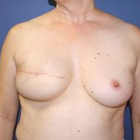
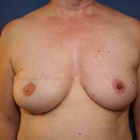
Front view
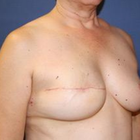
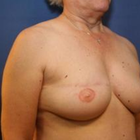
Half-side view
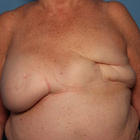

Front view
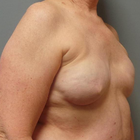
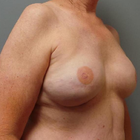
Half-side view

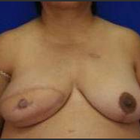
Front view

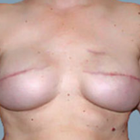
Front view
WHY US?
At Medijump, we're making medical easy. You can search, compare, discuss, and book your medical all in one place. We open the door to the best medical providers worldwide, saving you time and energy along the way, and it's all for FREE, no hidden fees, and no price markups guaranteed. So what are you waiting for?

Free

Best Price

Widest Selection

Risk-Free
What you need to know about Breast Reconstruction in Marbella
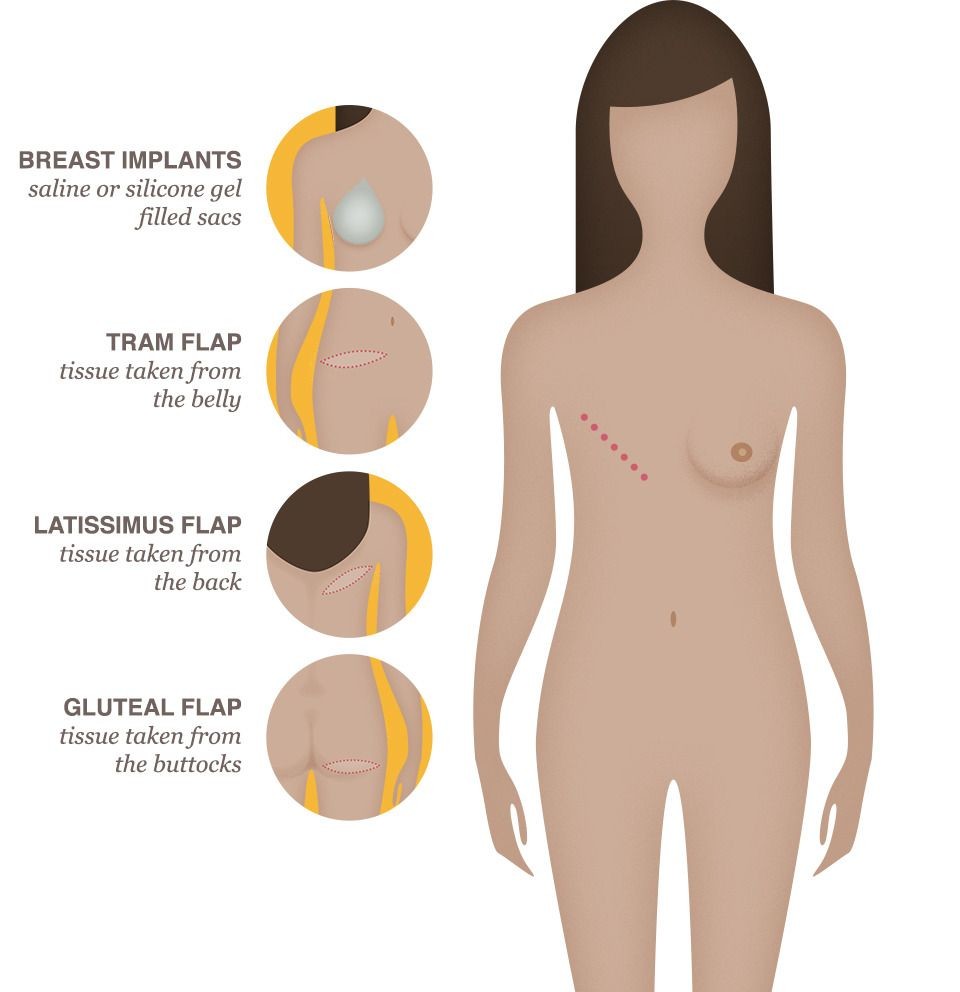
Breast reconstruction is a significant surgery undertaken to rejuvenate the physical form of a woman's chest after losing one or both breasts to cancer or another disease. In Marbella, medical centres are well-equipped with top-tier talent in plastic surgery to facilitate this intricate procedure. Every woman's journey is different, and her treatment plan is personalized, considering her unique circumstances and needs.
It's heartening to know that breast cancer treatments like chemotherapy or radiation therapy aren't impeded by reconstruction. Moreover, this surgery doesn't spike the risk of cancer coming back. Undeniably, breast reconstruction is a major surgery with inherent risks, including chances of infection, complications with wound healing, and potential dilemmas related to implants.
What is the cost of Breast Reconstruction in Marbella?
Undergoing surgery like Breast Reconstruction brings along a financial commitment. The expense varies extensively, depending on many factors like the complexity of the procedure, the medical professional performing the surgery, the hospital's facility, and the region, amongst others. Generally, the cost might range between $15,000 to $50,000, including multiple surgeries or intricate techniques within this estimate.
Thankfully, in many cases, insurance plans cover such surgical procedures, especially given mandates like the Women's Health and Cancer Rights Act of 1998 in the U.S. Still, out-of-pocket expenses associated with co-payment or deductibles can add up. It's recommended to navigate these aspects with your insurance provider and your chosen healthcare facility in Marbella.
What does a Breast Reconstruction Procedure Involve?
Breast reconstruction generally happens in stages, starting with the most complex first, which may either occur at the same time as the mastectomy or later, based on the individual’s specific health conditions or treatment plan.
Two main techniques are employed in breast reconstruction. One is the use of an implant, saline, or silicone to recreate the breast shape. Two, autologous or flap reconstruction where tissue from the patient’s body like the abdomen or thigh is relocated to recreate the breast shape. The method selected is dependent on individual factors like the patient’s health, personal choice, cancer type, and stage.
After the primary surgery and post an adequate healing period, the surgeon performs a second procedure to recreate the nipple and areola. Later, to give it a natural look, the nipple-areola complex is tattooed. Remember that although it is a common procedure, complications might arise involving reaction to anaesthesia, bleeding, infection, poor healing or the need for further interventions.
How Long Should I Stay in Marbella for a Breast Reconstruction Procedure?
Post-breast reconstruction surgery, patients typically stay in the hospital for two to five days. However, if the reconstruction was done immediately after the mastectomy, the stay could extend from three to six days.
Overall, a patient should expect to remain in Marbella for approximately two weeks post-surgery. This allows enough time for necessary follow-ups and to address any complications, if they arise. As with any major surgical procedure, do not hasten the healing process.
What's the Recovery Time for Breast Reconstruction Procedures in Marbella?
The recovery timeframe for breast reconstruction procedures in Marbella varies from patient to patient. Generally, for implant-based procedures, patients may take about four to six weeks to recuperate before they return to normal routines. For more complex autologous techniques, particularly those using abdominal tissue, patients might require six to eight weeks for recovery.
Recovering patients need to temper their activities during this period. Avoid lifting heavy objects and defer strenuous exercise until your physician gives a clear signal. Medical assistance should be promptly sought if any discomforting symptoms like chronic pain, redness or swelling surface.
What's the Success Rate of Breast Reconstruction Procedures in Marbella?
Medical success cannot just be measured in terms of complication-free postoperative progress or longevity of implants used in breast reconstruction. Patient satisfaction with their surgery, their psychological well-being following the operation, their perception of body image, and their quality of life post-surgery are equally important factors to consider. Studies indicate that between 85% to 90% of women who have undergone breast reconstruction are satisfied with the long-term results.
In Marbella, dedicated hospitals and healthcare facilities strive to offer high-quality treatment, ensuring the best possible surgical outcomes using progressive technology and experienced professionals. Still, everyone's response to surgery varies, and outcomes depend on factors such as overall health, age, body type, and compliance with surgical advice.
Are there Alternatives to Breast Reconstruction Procedures in Marbella?
Indeed, there are alternatives to breast reconstruction in Marbella. The journey of every woman is unique and how she chooses to deal with the loss of a breast, or both, is a highly personal decision. Alternatives include:
- Breast Prostheses or Forms: They are silicone forms that imitate the appearance and feel of natural breast tissue. They come in diverse sizes, shapes and colours to closely match the woman's skin tone.
- Flat Closure: In this method, the surgeons sew up the chest wound smoothly, without constructing a breast mound. This option appeals to women who choose not to have more surgeries or body implants.
- Opting not to undergo reconstruction at all, also termed as "going flat: This method exhibits the woman's choice to live comfortably with her new body shape without artificial substitutes or further surgeries. It is a fully personal decision deserving respect and support.
Each of these options has pros and cons, and the choice depends on the woman’s personal preference, health status, lifestyle, and perception of her body. Regardless of the choice, it’s important to regularly monitor breast health and engage in practices that promote overall wellness.
What Should You Expect Before and After the Breast Reconstruction Procedure?
Before the surgery, comprehensive discussions with the surgeon will take place to understand treatment objectives, outcomes, and possible complications. Preoperative tests, lifestyle modifications, and nutritional advice may form a part of the preparatory process.
Postoperative care is equally important: discomfort, swelling, and bruising are normal and subside over time. Pain management strategies will be provided to help you manage discomfort effectively. Your surgeon will provide personalised guidance on caring for your surgical site, usage of medications, and physical activities.
What sort of Aftercare is Required for Breast Reconstruction Procedures in Marbella?
The following points should be considered post-operation:
- Follow the instructions given by your doctor and take your medicines as and when prescribed.
- Consult a nutritionist for a diet plan. A healthy diet helps you recover faster.
- Do not wear a padded or underwire bra until allowed by your doctor.
- Use surgical bras in the early few days after the surgery.
- Avoid excessive unnecessary movement of your breasts.
- Do not lift heavy objects and children - it could stretch on your stitches.
- Change your bandage whenever it gets dirty. Germs can cause infection.
- Do not take a bath when the bandages are still intact. A wet bandage can also be the cause of infection.
- Abstain from sexual activity for at least 6 weeks.
- Take rest - give yourself time to recover.
How Do I Prevent Cancer from Recurring?
Preventing cancer recurrence largely revolves around a balanced, healthy lifestyle coupled with regular medical check-ups. Regular exercise, maintaining a healthy weight, and eating nutritiously can contribute to cancer prevention. Smoke cessation and limiting exposure to secondhand smoke are crucial for both prevention and postoperative recovery.
Regular breast self-examinations, as well as mammograms and follow-up visits, are critical for early detection of any recurrence. Stress management techniques like yoga, meditation, and spending time in nature can also play an essential role in overall health.
Your medical team in Marbella is there to support you, offering advice tailored to your individual health status and medical history. Remember, proactive health checks are key to maintaining overall health and preventing the recurrence of diseases like cancer.
What is the ideal time to have Breast Reconstruction surgery after a Mastectomy in Marbella?
The decision regarding when to have Breast Reconstruction following a Mastectomy in Marbella is largely based on the individual's health status, treatment plan, personal preferences, and discussions with the oncology team. Breast reconstruction can be done at the time of mastectomy (immediate reconstruction) or at a later date (delayed reconstruction). Immediate reconstruction might offer psychological benefits and less overall surgery since both procedures are done together. Yet, if additional treatments such as radiation therapy are required post-mastectomy, opting for delayed reconstruction could be advisable to avoid risks posed by radiation to the new construct.
Remember that deciding on the timing of breast reconstruction is a personal choice and should be made in consultation with your healthcare providers. They can provide specific guidance based on your health condition and treatment plan.
How Will Breast Reconstruction in Marbella Impact My Routine Mammograms and Breast Cancer Detection?
Breast reconstruction surgery may impact the way routine breast cancer screenings are conducted. After a mastectomy with or without reconstruction, women usually don't need routine screening mammograms on the treated side since all breast tissue has been removed. However, they would need routine mammograms for the untreated breasts.
If you've had reconstruction using your own body tissue, your surgeon or oncologist will guide you on whether or not you'll require mammograms on the reconstructed breast. Remember, mammograms can still be performed on reconstructed breasts, and self-breast exams should be a regular part of your health routine.
Whilst the information presented here has been accurately sourced and verified by a medical professional for its accuracy, it is still advised to consult with your doctor before pursuing a medical treatment at one of the listed medical providers
No Time?
Tell us what you're looking for and we'll reachout to the top clinics all at once
Enquire Now

Popular Procedures in Marbella
Prices Start From $497

Prices Start From $208

Prices Start From $834

Prices Start From $500

Prices Start From $93

Prices Start From $85

Recommended Medical Centers in Marbella for Breast Reconstruction

- Interpreter services
- Translation service
- Religious facilities
- Medical records transfer
- Medical travel insurance
- Health insurance coordination
- TV in the room
- Safe in the room
- Phone in the room
- Private rooms for patients available

- Interpreter services
- Translation service
- Religious facilities
- Medical records transfer
- Medical travel insurance
- Health insurance coordination
- TV in the room
- Safe in the room
- Phone in the room
- Private rooms for patients available

- Interpreter services
- Translation service
- Religious facilities
- Medical records transfer
- Medical travel insurance
- Health insurance coordination
- TV in the room
- Safe in the room
- Phone in the room
- Private rooms for patients available

- Interpreter services
- Translation service
- Religious facilities
- Medical records transfer
- Medical travel insurance
- Health insurance coordination
- TV in the room
- Safe in the room
- Phone in the room
- Private rooms for patients available

- Interpreter services
- Translation service
- Religious facilities
- Medical records transfer
- Medical travel insurance
- Health insurance coordination
- TV in the room
- Safe in the room
- Phone in the room
- Private rooms for patients available

- Interpreter services
- Translation service
- Religious facilities
- Medical records transfer
- Medical travel insurance
- Health insurance coordination
- TV in the room
- Safe in the room
- Phone in the room
- Private rooms for patients available

- Interpreter services
- Translation service
- Religious facilities
- Medical records transfer
- Medical travel insurance
- Health insurance coordination
- TV in the room
- Safe in the room
- Phone in the room
- Private rooms for patients available

- Interpreter services
- Translation service
- Religious facilities
- Medical records transfer
- Medical travel insurance
- Health insurance coordination
- TV in the room
- Safe in the room
- Phone in the room
- Private rooms for patients available

- Interpreter services
- Translation service
- Religious facilities
- Medical records transfer
- Medical travel insurance
- Health insurance coordination
- TV in the room
- Safe in the room
- Phone in the room
- Private rooms for patients available

- Interpreter services
- Translation service
- Religious facilities
- Medical records transfer
- Medical travel insurance
- Health insurance coordination
- TV in the room
- Safe in the room
- Phone in the room
- Private rooms for patients available
Breast Reconstruction in and around Marbella
About Marbella
Marbella is a city and a municipality located in southern Spain. Situated on the Mediterranean Sea, the city is one of the most cosmopolitan beach resorts in the country. It is particularly famous for its beaches with fine sand and clear blue water. Today, Marbella has become a preferred destination for medical tourism. The city is filled with a great variety of hospitals and clinics offering high-class services, from beauty and wellbeing to major medical treatments such as oncology and traumatology. All the private hospitals in the city now have a department that works exclusively to attract international patients. These hospitals all provide luxurious services and round the clock care. International medical tourists will feel as if they are staying in a 5-star hotel instead of a hospital. Furthermore, these hospitals are staffed with highly-skilled doctors and specialists.
Popular Parts of Madrid
Marbella’s biggest draw is its beaches, including Nagüeles Beach and El Ancón Beach, where people can sunbathe, swim, or even enjoy water sports activities. Most of the beaches are also lined with amazing beach bars to eat or drink while escaping the heat. Beyond its beaches, Marbella also has a significant historical heritage. The most popular area to visit is the old quarter (Casco Antiguo), which is packed with beautiful Andalucian and Moorish architecture, ornately painted tiles, balconies full of flowers, and narrow streets. Visitors can also find numerous churches and chapels. In the heart of the old quarter is Plaza de Los Naranjos, a square where visitors can find the city hall, restaurants and bars, renaissance architecture, and orange trees.
Transport in Madrid
Málaga Airport is the nearest airport to Marbella. It has both domestic and international flights to many cities in Europe and is serviced by numerous airlines. Those who want to get around with public transportation are provided with a network of seven local bus lines, which is relatively affordable and will get visitors too many places around the city. Taxis are available and official rates are displayed inside the licensed taxi. Visitors who stay in the downtown area can get around by foot easily since the area is fairly compact.
Visas in Madrid
Spain is a part of the Schengen Convention, meaning citizens of 62 countries, such as Australia, Canada, and the US, do not need a visa to visit and stay in Marbella for up to 90 days. Holders of passports issued by other countries not listed in the visa-free agreement need to apply and obtain a visa prior to arrival.
Weather in Madrid
Marbella experiences a Mediterranean climate with about 320 sunshine days each year. The summer in the city is hot, while the winter is typically mild. During the hottest months, July and August, the temperatures can soar to 30°C, but the breeze of the Mediterranean Sea will make the hot temperatures bearable. December to January is somewhat rainier than the rest of the year.
Additional Info
- Local Currency: The local currency used in Marbella is the Euro. 1 EUR converts to approx. 1.12 USD.
- Money & Payments: ATMs are widely available around Marbella. Credit cards are accepted in most businesses and tipping is expected in some places.
- Local Language: The Spanish spoken in Marbella is Andalusian Spanish. English is widely spoken, especially in tourist areas.
- Local Culture and Religion: Christianity is the largest religion in Marbella. However, other religions are also freely practiced.
- Public Holidays: New Year's Day, Andalucía Day, San José, Spanish National Day, and Christmas Day are some of the most important public holidays in the city.
Popular Searches
- Plastic Surgery in Thailand
- Dental Implants in Thailand
- Hair Transplant in Thailand
- Breast Augmentation Thailand
- Gastric Sleeve in Thailand
- Gender Reassignment Surgery in Thailand
- Laser Hair Removal in Bangkok
- Botox in Bangkok
- Dermatology in Bangkok
- Breast Augmentation in Bangkok
- Coolsculpting in Bangkok
- Veneers in Turkey
- Hair Transplant in Turkey
- Rhinoplasty in Turkey
- Stem Cell Therapy in Mexico
- Rhinoplasty in Mexico
- Liposuction in Mexico
- Coolsculpting in Tijuana
- Rhinoplasty in Korea
- Scar Removal in Korea
- Gastric Sleeve in Turkey
- Bone Marrow Transplant in India
- Invisalign in Malaysia
- Plastic Surgery in the Dominican Republic
- Tummy Tuck in the Dominican Republic
- Plastic and Cosmetic Surgery in Poland
- Rhinoplasty in Poland
- Hair Implant in Poland
- Dental Implants in Poland
- IVF in Turkey



